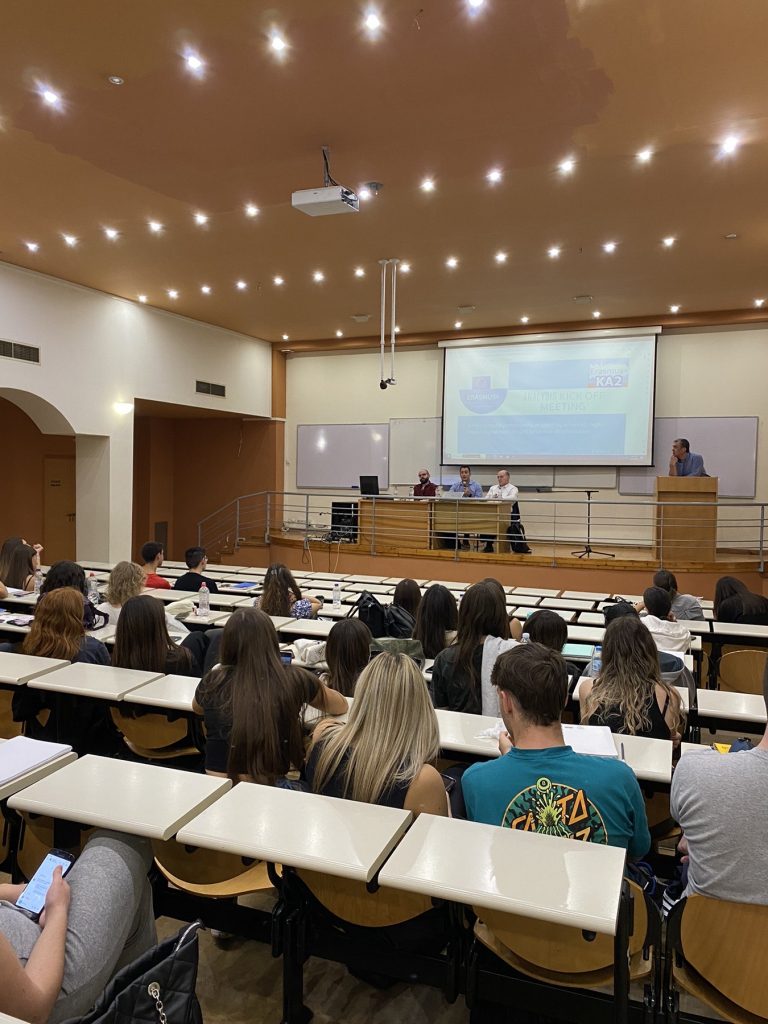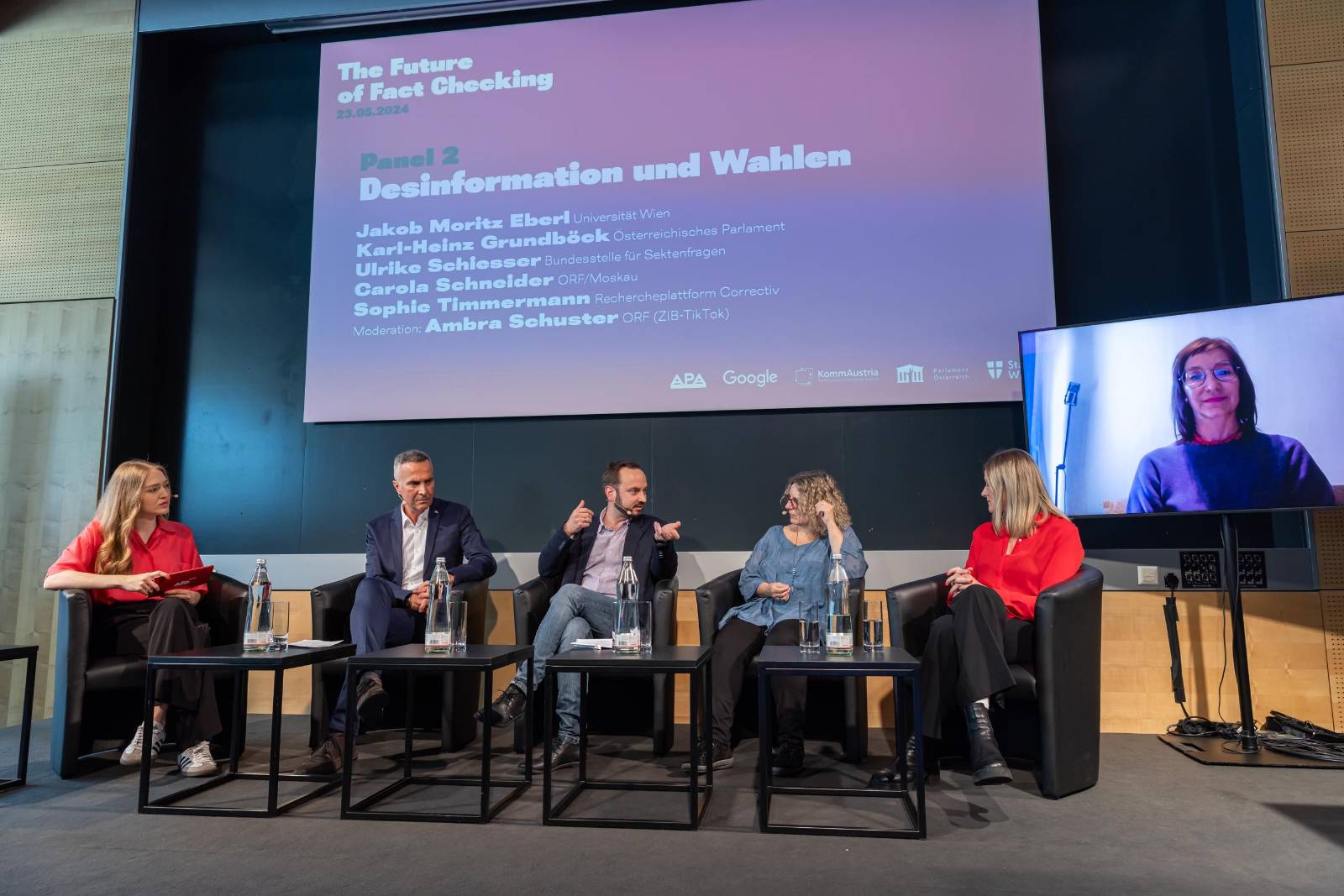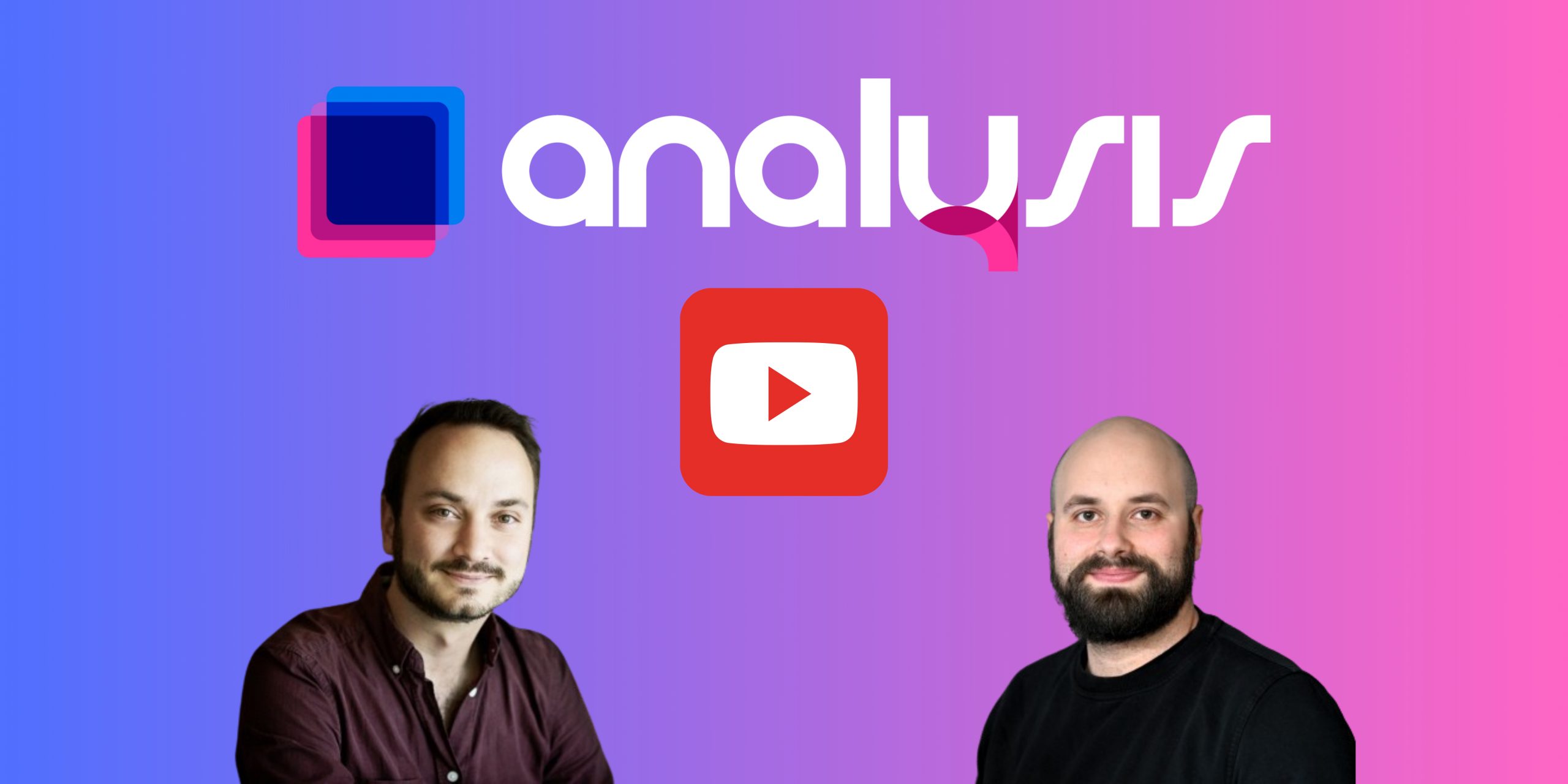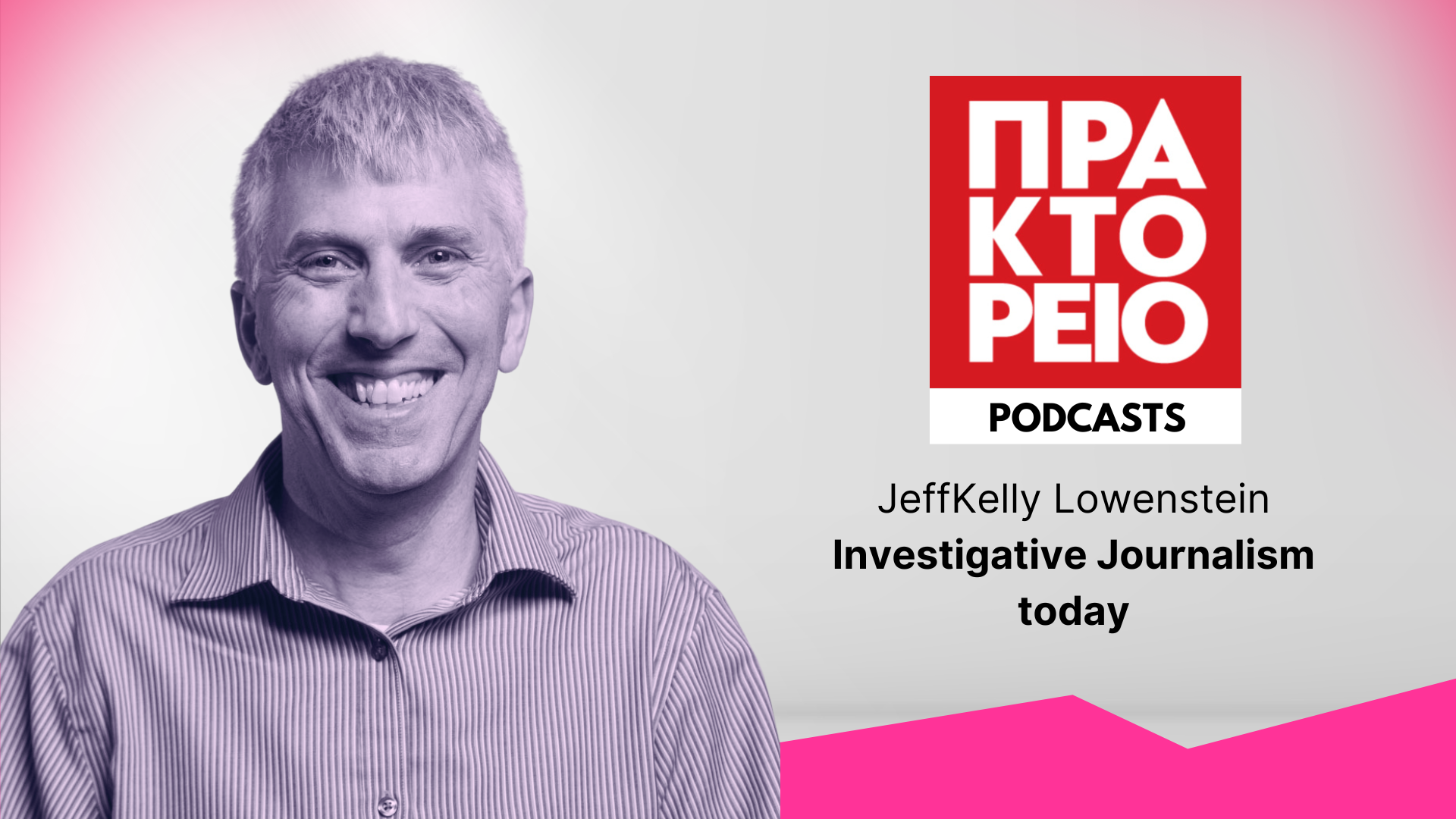On Thursday October 12th, students, researchers, and professionals from the fields of communication, journalism and technology participated in the event organized by the Department of Communication and Media Studies in the framework of Erasmus Days 2023. The aim of the event was to promote and disseminate the Erasmus+ European project “ANALYSIS: trAiNing mediA professionals on appLYing advanced, high-impact digital technologieS to combat dISinformation”. At its core, ANALYSIS aspires to support news organizations and professional journalists in mastering news verification through digital learning processes and learning-by-doing strategies. The project aims to create a collaborative knowledge-transfer consortium that will provide high-quality learning opportunities for media professionals, enabling them to tackle the phenomenon of disinformation in Greece, Portugal, and Austria.
The event was moderated by Constantinos Mourlas, Professor of the Department of Communication and Media Studies and speakers of the event were Emilios Perdikaris, President of the Athens-Macedonian News Agency (ANA-MPA), Christos Gavalas, Fact-Checking Manager at Athens Technology Center and Panagiotis Gkanas, Social Media Marketeer at Liquid Media.

Key topics of the discussion were current and future media challenges, tools, and journalistic practices to tackle disinformation. Mr. Perdikaris referred to the correct way of utilizing technological solutions in journalism, pointing out that it is necessary to have clear regulations, appropriate tools, and specially trained journalists.
At the same time, Mr. Gavalas, referring to the Artificial Intelligence technologies that are increasingly adopted by news agencies, highlighted the “need that will become more and more evident around the creation of an LLM specifically for journalists world” with the crucial contribution of universities, so that journalists are not “hostage” to the results produced by big tech models such as OpenAI “no matter how well trained they are”. He also focused on Athens Technology Center’s participation in the European Digital Media Observatory (EDMO) and its branch in Greece, Cyprus, and Malta (MedDMO), which provide fact-checking services through approved organizations and technological tools for verifying news.
In the context of a discussion on the incorporation of fact-checking practices by Greek journalistic organizations, Mr. Gkanas stressed both the delay in adopting such practices and the absence of professional fact-checkers. Mr. Perdikaris also supported the institutionalization of the profession of fact-checker, stressing that the process of cross-checking should transition to the new era. He also highlighted the difficulty of tackling fake news in the social media space, as it becomes impossible to access and control data on platforms such as TikTok. Finally, Mr. Gkanas acknowledged the challenges identified on social media, particularly the emergence of deep fakes. These videos, which are created using Artificial Intelligence, accurately reproduce the speech and faces of famous and prominent people.
The event played a key role in promoting dialogue on tackling digital disinformation and facilitating an exchange of perspectives between students and media professionals.




